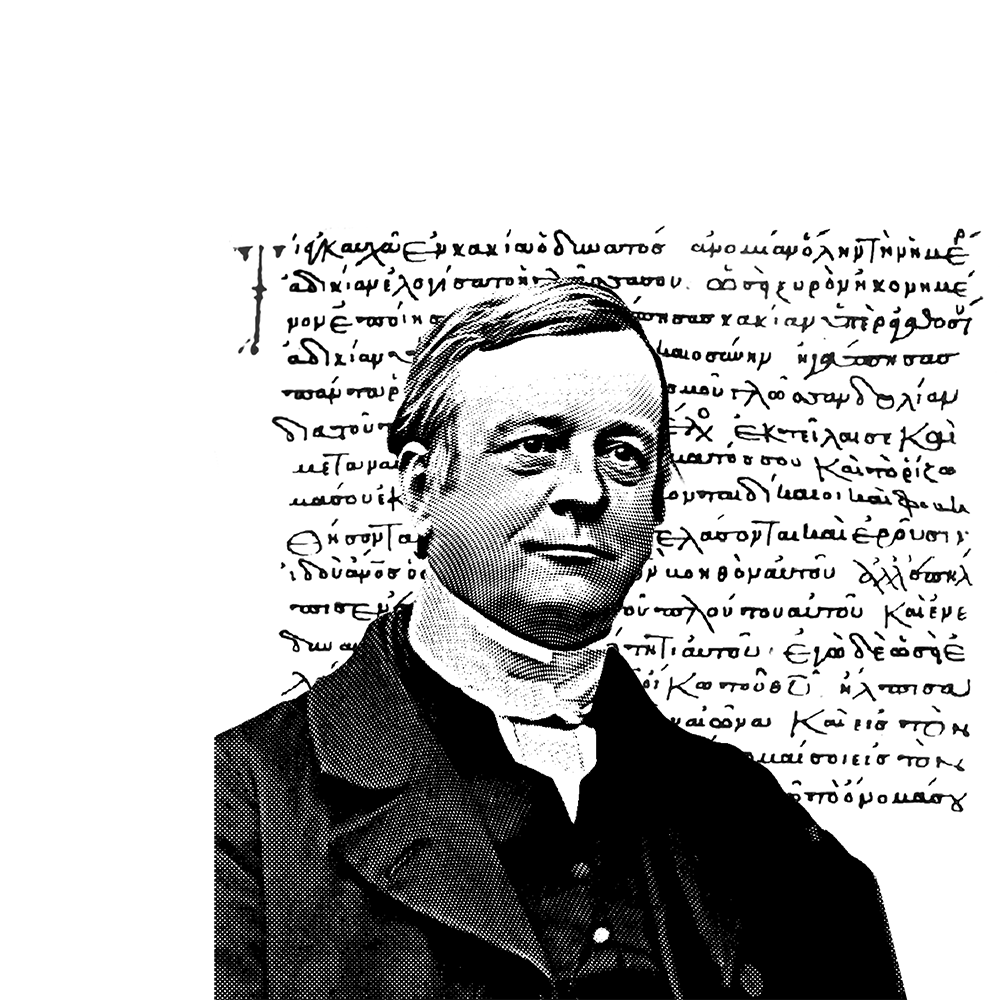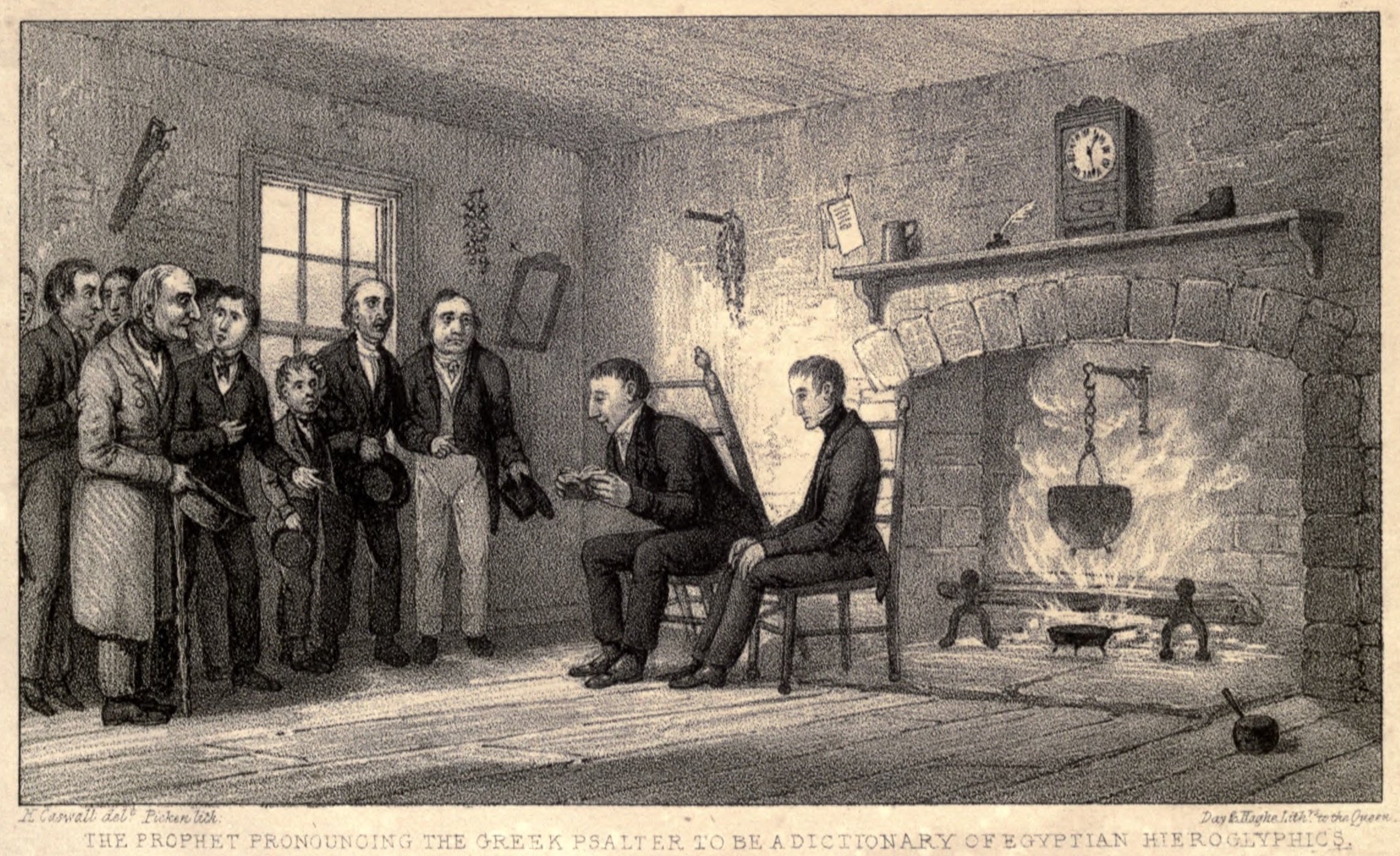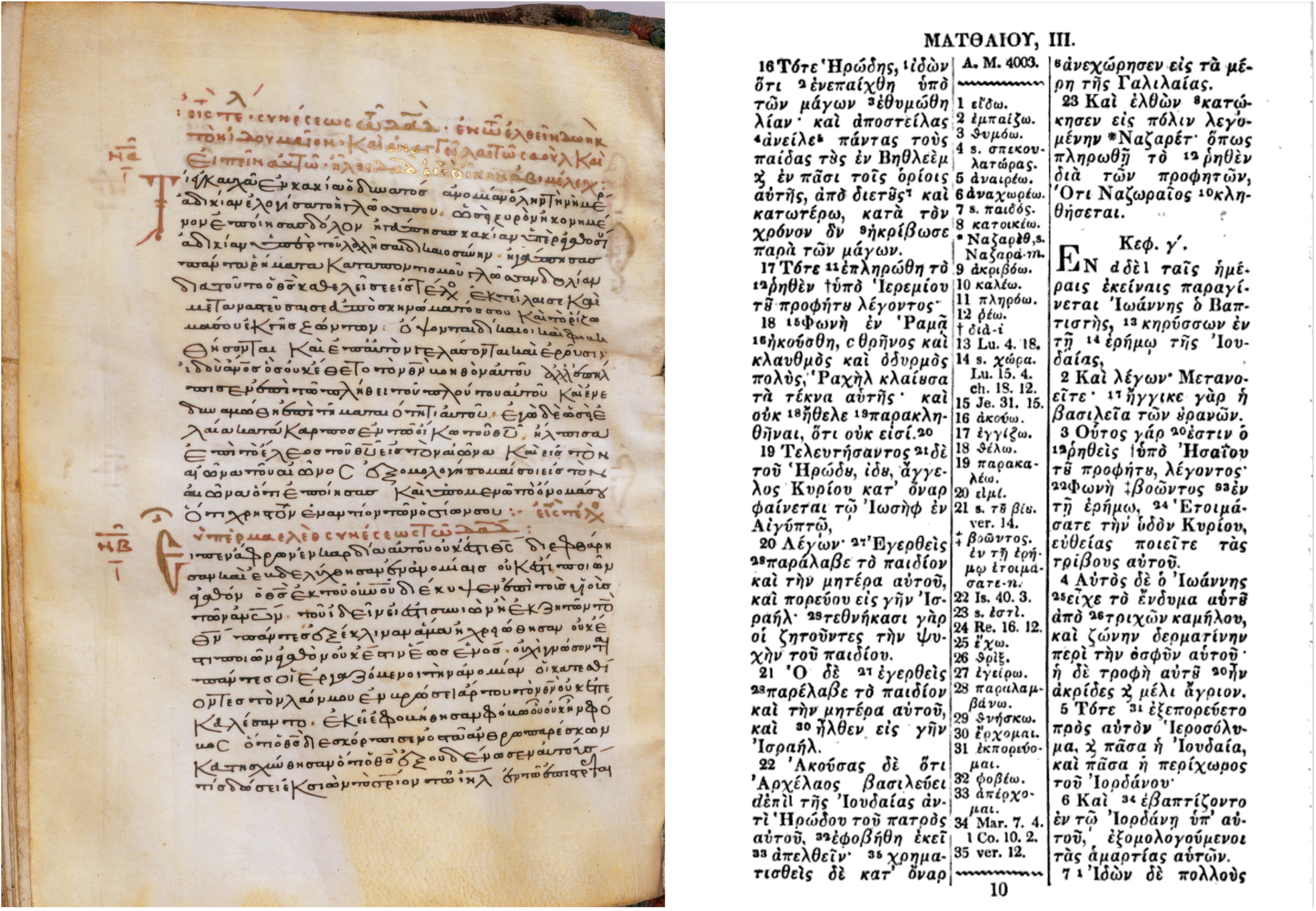Joseph Smith and the Greek Psalter

Latter-day Saints believe Joseph Smith was called by God to be a prophet, seer, revelator, and translator of ancient scripture. Certain episodes in the life of Joseph Smith, however, cause some to doubt his calling and professed ability as a translator. One of these episodes involves an English clergyman named Henry Caswall and an old Greek manuscript (a copy of the Psalms.) The "Greek Psalter" episode is a short footnote in Church history but has been used to undermine the prophetic role of Joseph Smith.
What is the "Greek Psalter incident"?
In April 1842, an Englishman named Henry Caswall[BIO] visited Joseph Smith[BIO] in Nauvoo.[1] During their meeting, he presented Joseph with a medieval Greek copy of the Psalms (known as a "Greek Psalter"), which Caswall claimed that Joseph misidentified as a "dictionary of Egyptian Hieroglyphics."[2]
Where does this story come from?
Henry Caswall is the only source of this story, and he retold it many times between 1842 and 1852.[3]
What was Caswall's relationship with the Church?
Caswall was an Episcopalian and later Anglican clergyman who visited Nauvoo in 1842.[4] In 1839 and before his visit to Nauvoo, he wrote that the Latter-day Saint movement was "one of the grossest impostures ever palmed on the credulity of man" and described the Saints as "fanatical" and suffering from a "delusion."[5]
Is there any corroborative evidence that Caswall was in Nauvoo with a psalter at the time?
Yes. There is evidence from several sources confirming that Caswall was in Nauvoo at the time,[6] including an account from John Taylor[BIO] where he described Caswall as a "gentleman" but also a "wicked man" who came to Nauvoo for the "purpose of looking for evil."[7]
There is also an anonymous report from 50 years later that was published in the Buffalo Evening News that claims to have seen the psalter that Caswall had in Nauvoo at the time.[8]
Did anyone else corroborate Caswall's account about Joseph being fooled by the Psalter specifically?
No, and two accounts from John Taylor seem to contradict it.[9]

Is Caswall's account credible?
Yes and no. Caswall's claim that he was in Nauvoo with a Greek psalter is corroborated by other sources.[10] However, his depiction of Joseph Smith speaking with exaggerated unsophistication (e.g., "it ain't Greek" and "them figures is Egyptian") and cartoonish physical characteristics (e.g., "[Joseph was] a curious mixture of the knave and the clown . . . his hands are large and fat. . .") do not align with contemporary accounts of how Joseph looked and spoke, which undermines the credibility of Caswall's story.[11]
Did Joseph claim he identified the Greek Psalter by revelation?
No. Neither Caswall nor any other source claims Joseph had a revelation about the contents of the manuscript.[12][13]
Was Joseph familiar with Greek at the time of the incident?
Possibly. There is some historical evidence that Joseph had studied some Greek before his encounter with Caswall.[14]
However, examples of medieval Greek Psalters show they were written in a script not typically seen in printed Greek Bibles from Joseph Smith's era (see the side-by-side comparison below), and Caswall himself said his manuscript was written in a form of Greek script that "few people are able to read."[15] It's possible that Joseph, with his limited study of Greek, would not have recognized the medieval style of Greek.

Did something similar like this happen with the Kinderhook plates? Does this establish a pattern of Joseph misidentifying things that were brought to him?
Joseph's prophetic authority was challenged by both Henry Caswall with the Greek Psalter and by Wilburn Fugate[BIO] with the Kinderhook Plates.[16] Joseph had an interest and curiosity in ancient texts, languages, and other antiquities which made him susceptible to bad actors attempting to deceive him.[17]
However, there is no record of Joseph claiming to have received revelation or making prophetic declarations in response to these items (the Kinderhook Plates and the Greek Psalter).
Did Joseph attempt to translate the Kinderhook plates?
But didn’t Joseph make more than a preliminary guess about the plates? Didn’t he actually try to translate them?
Read more in The Kinderhook Plates
Has the Church ever addressed this episode?
No. The "Greek Psalter incident" has primarily been a topic of interest to critics of the Church and Latter-day Saint historians and scholars.[18] However, Apostle John A. Widtsoe[BIO] briefly discussed it in a 1951 book on Joseph Smith.[19]
- Kent W. T.
“Well done. Anti-Mormon claims are usually constructed of heavily-colored spin, exaggeration, misinformation, or built on false assumptions or logical fallacy, including the idea that a Prophet can't have a purely human opinion aside from the Calling.” - Henry G.
“Brother Joseph did not talk in ignorant hillbilly-speak like this caricaturist claims. I think it's safe to discard this story entirely.” - Jordan W.
“Mr. Caswall’s story sounds kinda sus.”



 about this topic
about this topic